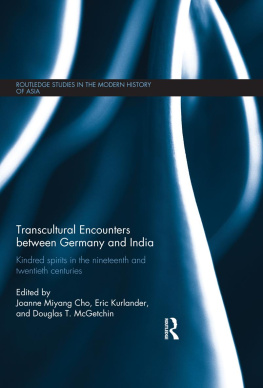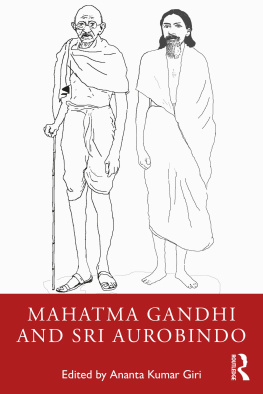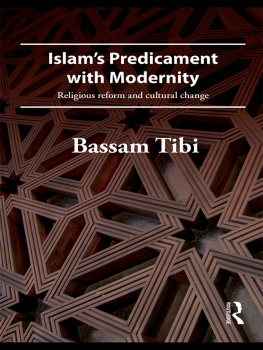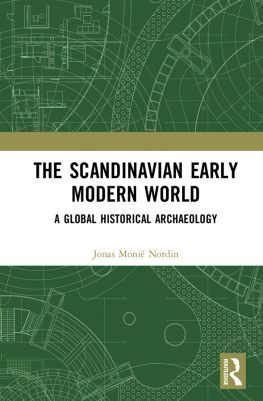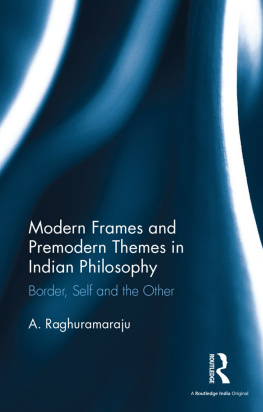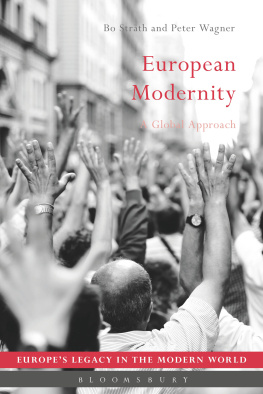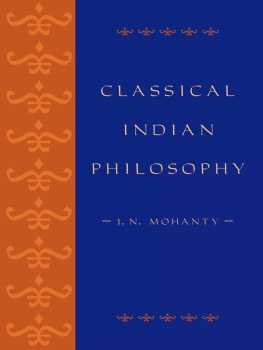Cosmopolitan Modernity in Early 20th-Century India
This book presents an alternative view of cosmopolitanism, citizenship and modernity in early 20th-century India through the multiple lenses of mysticism, travel, friendship, art, and politics. It makes a key intervention in the understanding of cosmopolitan modernity based on the lives and experiences of Rabindranath Tagore, Ananda Coomaraswamy, Sri Aurobindo, Mirra Alfassa, James Cousins, Paul Richard, Dilip Kumar Roy, and Taraknath Das. Using archival texts and photographs, Mohanty interrogates the ideas of tradition and modernity, the local and the global, and Self and the world as integral to the conception of a cosmopolitan world order.
This second edition will interest scholars and students of modern Indian history, comparative literature, cultural studies, Indian philosophy, and South Asian studies and the general reader.
Sachidananda Mohanty is Vice-Chancellor, Central University of Orissa, India. He was previously Professor and Head, Department of English, University of Hyderabad. He is the recipient of several national and international distinctions including the British Council, the Fulbright, the Salzburg, and the Katha awards. A contributing editor to the literary e-journal Muse India, he has published extensively in the fields of British, postcolonial, gender, and translation studies and has done significant work in archival research and the cultural history of 19th-century India. He is a member of Indias Commission on Education for UNESCO and the Governing Board of the Auroville Foundation.
[This volume] builds on the seminal theorizations of pan-Asian cosmopolitanism to shift the discourse to early 20th-century India [Mohantys] deft deployment of half-forgotten figures and dusty archives may well provide relevant clues to our understanding of the globalization in process today.
Harish Trivedi, University of Delhi, India
Skilfully using interesting archival material, Sachidananda Mohanty maps out the emergence of the concept of cosmopolitan modernity at the beginning of the 20th century.
Malavika Karlekar, Indian Journal of Gender Studies
[This] book is especially valuable for drawing attention to overlooked historical encounters that can shed light on our current concern with cosmopolitan modernity and its implications for the future of world cultures.
Barbara Nelson, School of Culture, History and Language, ANU
College of Asia and the Pacific, Canberra, Australia
While words like modernity, cosmopolitanism and citizenship are usually defined in terms of their Western genesis, here are refreshingly new definitions, which have lifted these terms from their stereotypical contexts and accorded them a new orientation in their displacement and transmigration. This text will contribute significantly to the current debate on what constitutes modernity for us.
Prafulla C. Kar, Director, Centre for Contemporary Theory, Baroda,
India
Bringing together several great thinkers, writers and activists of the twentieth century Sachidananda Mohanty raises questions that are important to us now about cosmopolitanism and cultural citizenship, decolonization and the ethics of globalization.
Meena Alexander, Professor of English, Graduate Center/Hunter
College, City University of New York, USA
Second edition published 2018
by Routledge
2 Park Square, Milton Park, Abingdon, Oxon, OX14 4RN
and by Routledge
711 Third Avenue, New York, NY 10017
Routledge is an imprint of the Taylor & Francis Group, an informa business
2018 Sachidananda Mohanty
The right of Sachidananda Mohanty to be identified as author of this work has been asserted by him in accordance with sections 77 and 78 of the Copyright, Designs and Patents Act 1988.
All rights reserved. No part of this book may be reprinted or reproduced or utilised in any form or by any electronic, mechanical, or other means, now known or hereafter invented, including photocopying and recording, or in any information storage or retrieval system, without permission in writing from the publishers.
Trademark notice: Product or corporate names may be trademarks or registered trademarks, and are used only for identification and explanation without intent to infringe.
First edition published in India by Routledge 2015
British Library Cataloguing-in-Publication Data
A catalogue record for this book is available from the British Library
Library of Congress Cataloging-in-Publication Data
A catalog record has been requested for this book
ISBN: 978-1-138-55754-3 (hbk)
ISBN: 978-0-429-50683-3 (ebk)
Typeset in Minion Pro by
Servis Filmsetting Ltd, Stockport, Cheshire
Cosmopolitanism Revisited

Forging Newer Ties Between the Local and the Global
G reek philosopher Heraclitus memorably said: we cannot cross the same river twice. Our acts of perception seldom remain the same after a passage in time. This is as true of acts of recalling as of acts of revision of a book, an experience or a spectacle. For many authors, therefore, rewriting is a much better and more preferred option than a revision of a book or a narrative.
Two factors seem to act as essential prerequisites for the need for the revising/rewriting of a book: the discovery of new facts, data and evidence both empirical and critical, along with new developments in theory, and as a corollary, the need for the restructuring of a work of art, especially a critical oeuvre. Added to this is a self-evidently mundane necessity: availability of time.
This book, Cosmopolitan Modernity in Early 20th-Century India was published in 2015 by Routledge India. It has done well and has had a commendable print-run as a critical work. Two years have gone by. There were welcome suggestions by Routledge Indias editors for a new South Asia edition with a revision of the book. The idea was to make it free from certain inaccuracies as well as typographical and other errors; many of these were thoughtfully pointed out by friends, readers and well-wishers.
The world seems to have changed somewhat in the last few years. Along with this change, there have been basic alterations in some of the underlying assumptions that were taken for granted in the volume. It may be worthwhile, therefore, to revisit the core argument of the book and determine if the central thesis in the volume remains valid or not.
I believe that the underlying thesis of the book remains valid in the main: that internationalism or cosmopolitanism is not the unique attribute of the dominant cultures of the Metropolitan West, and that alternative approaches to cosmopolitan modernity exist and were historically manifest in the early decades of 20th-century India these were the fundamental claims of the book under discussion. However, while this truth-claim may be accepted as a viable one, despite the gap of two years, there have been a number of pivotal developments at the international level, especially in Great Britain and the Western hemisphere, that call for a rethinking of the cosmopolitan modernity project envisioned in my book. It would be the primary objective of the present Introduction to reflect on some of these new developments in the field of economy, politics and culture and arrive possibly at a newer set of conclusions.


